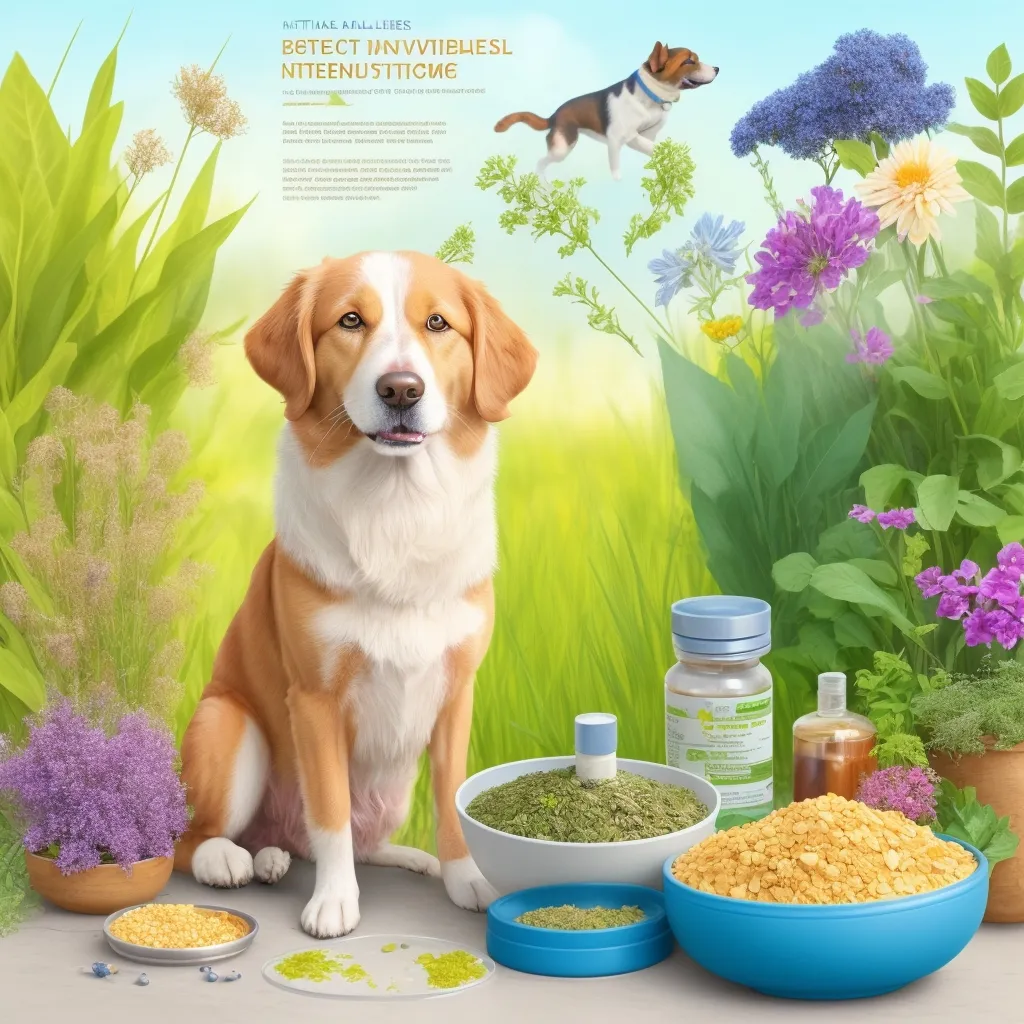12 Rewarding Reasons to Adopt All Good Dogs from Shelters
Hey there, fellow dog enthusiast! If you’re here, you’re probably contemplating the idea of adopting a furry friend from a shelter, and let me tell you, it’s one of the most profoundly rewarding experiences you can have. Based on years of working in animal adoption and rescue, I’ve distilled some key reasons why bringing home a shelter dog isn’t just a good deed, but a truly fulfilling journey for everyone involved. The decision to adopt represents a beautiful intersection of compassion, practicality, and pure joy that transforms not just the life of a deserving animal, but your own life in ways you might never have imagined. Let’s dive in!
Experience Unconditional Love
Nothing quite beats the feeling of being greeted by a furiously wagging tail and a happy, goofy face every single time you walk through the door. It’s a pure, unadulterated joy that never gets old, no matter how many times you experience it. Shelter dogs, many of whom have faced difficult pasts, often seem to understand their second chance at life on a deeply intuitive level. They show it through the most heartwarming affection and unwavering loyalty imaginable. It’s a bond unlike any other, truly.
What’s particularly remarkable is how these dogs seem to possess an almost supernatural ability to sense when you’ve had a rough day. They’ll rest their head on your lap with perfect timing, offer gentle kisses when you need them most, or simply sit quietly beside you, providing that comforting presence that only a devoted canine companion can offer. This emotional intelligence, honed perhaps through their own experiences of hardship and recovery, creates a connection that goes far beyond the typical pet-owner relationship.
Save a Life
Here’s the thing though: by adopting, you’re not just getting a pet; you are, quite literally, saving a life. It’s a powerful thought that carries real weight. While the numbers fluctuate, approximately 607,000 animals were euthanized in U.S. shelters in 2024, though this marks a 2% decrease from 2023 – a positive trend that reflects increased adoption efforts and improved shelter practices. Taking one home directly reduces that heartbreaking statistic, and trust me, knowing you’ve made such a tangible difference for a deserving animal is an incredible, humbling feeling.
Consider this: every single adoption creates a ripple effect of life-saving impact. When you adopt one dog, you’re not only saving that particular animal, but you’re also making space for another dog to be rescued from the streets, from an abusive situation, or from overcrowded conditions elsewhere. It’s a beautiful chain reaction of compassion that extends far beyond your individual act of kindness.
Reduce Overcrowding
Shelters, especially in recent years, are frequently at or even over capacity. This is a frustrating reality for rescue workers who witness daily the struggle to provide adequate care and attention to every animal in their facility. Adopting a dog helps alleviate this critical overcrowding, freeing up much-needed space and resources for other animals desperately awaiting their turn. It’s a wonderful, direct way to support your local shelter community and the tireless folks who work there.
The overcrowding issue has become particularly acute in many regions, with some shelters reporting wait lists for surrendered animals and having to make difficult decisions about intake capacity. When you adopt, you’re essentially becoming part of the solution to this community-wide challenge, helping ensure that shelters can continue their vital work of rescue, rehabilitation, and rehoming.
Find Your Perfect Match
What’s interesting is that shelter dogs come in an astonishing array of shapes, sizes, breeds, and, most importantly, temperaments. Whether you’re dreaming of a high-energy jogging buddy who can keep up with your marathon training, a playful family companion who adores children and backyard games, or a laid-back couch potato who just wants to snuggle during movie nights, there’s a fantastic chance you’ll find your perfect canine soulmate waiting for you.
From my experience, many shelters and rescue organizations now offer sophisticated personality assessments and extensive foster programs to help you make the absolute best choice, ensuring a harmonious match for both you and the dog. These assessments often include evaluations of energy levels, social preferences, training responsiveness, and compatibility with children or other pets. You might even find a purebred! Approximately 25% of dogs in shelters are purebreds, including everything from Golden Retrievers and German Shepherds to more specialized breeds like Border Collies and even the occasional rare breed that ended up in rescue through unexpected circumstances.
Cost-Effective
Financially speaking, adopting from a shelter is often significantly more affordable than purchasing from a breeder, where costs can easily reach thousands of dollars for popular breeds. Most reputable shelters include initial vet visits, essential vaccinations, microchipping, and spaying or neutering as part of their adoption fee, saving you substantial upfront costs that could otherwise total $500-800 or more. This is a huge benefit for new pet parents who want to ensure their dog gets the best start in life without the financial strain.
Additionally, many shelters offer post-adoption support services, including discounted training classes, behavioral consultations, and even temporary boarding services for adopters who travel. These value-added services can save hundreds of dollars over your dog’s lifetime while ensuring a successful transition into your family. For more ways to ensure your dog stays healthy without breaking the bank, check out Prevent Common Dog Health Issues: 11 Vital Tips.
Support Ethical Practices
Choosing adoption over buying from a breeder or, worse, a pet store, directly reduces the demand for puppy mills and other unethical breeding practices. It’s a powerful way to stand against animal cruelty and actively promote humane treatment for all animals. Puppy mills, which prioritize profit over animal welfare, often keep breeding dogs in deplorable conditions with minimal veterinary care, inadequate socialization, and constant breeding cycles that take a severe toll on the animals’ physical and mental health.
By adopting, you’re casting a vote with your wallet for ethical treatment of animals and supporting organizations that prioritize rehabilitation, proper medical care, and finding loving homes over profit margins. Speaking of ethics and the future, you might be interested to learn more about future trends in dog adoption unveiled, which explores how technology and changing attitudes are making adoption even more accessible and effective.
Gain a Gratitude Buddy
This is a personal favorite reason of mine, and it’s something that consistently amazes both new and experienced dog owners. Adopted dogs often display immense gratitude in ways that are both subtle and profound. It’s truly heartwarming to witness. Many owners report that rescue dogs have a unique, almost palpable way of expressing their thankfulness for a safe, loving home, which only serves to make the bond between you even stronger and more profound. It’s a beautiful thing to witness and experience daily.
This gratitude manifests in countless small moments: the way they settle contentedly into their new bed, the extra enthusiasm in their tail wag when you return home, or the gentle way they seem to check in with you throughout the day, as if to make sure this wonderful new reality is real and permanent. It’s as though they understand, on some level, that they’ve been given a precious gift – and they never take it for granted.
Train Together
You might be surprised, but rescue dogs can be excellent students! Many come with some basic training already in place, thanks to the dedicated work of shelter volunteers and foster families, but even if they don’t, working together on new commands and tricks can incredibly strengthen your bond. It’s a fantastic way to build trust and communication while establishing clear expectations and routines that help your new companion feel secure in their environment.
The training process becomes a collaborative journey of discovery, where you learn about your dog’s personality, preferences, and learning style while they adapt to your household rules and routines. Some rescue dogs may need patience with house training or leash manners, while others might surprise you with their quick grasp of complex commands. If you’re new to training, you might find avoid these common dog grooming mistakes now useful for ensuring your grooming techniques complement your training efforts – because a comfortable dog is a cooperative dog!
Teach Compassion
Adopting a shelter dog sets an incredibly powerful example of compassion, especially for children who are watching and learning from your actions. It’s a living lesson in empathy, responsibility, and the profound importance of caring for those in need. Kids learn firsthand about second chances, the joy of giving, and the reality that every living being deserves love and care regardless of their past circumstances.
Children who grow up with rescue dogs often develop a deeper understanding of social justice, kindness toward the vulnerable, and the importance of looking beyond surface appearances to see the potential in others. These lessons extend far beyond pet care, shaping their interactions with people and their approach to community involvement throughout their lives. The daily care of a rescue dog teaches practical responsibility while nurturing emotional intelligence and compassion.
Enjoy Health Benefits
It’s well-documented that owning a dog has remarkable health benefits that extend across physical, mental, and emotional wellbeing. Studies consistently link dog ownership to lower stress levels, reduced anxiety, decreased blood pressure, and increased physical activity. For instance, an American Psychiatric Association Healthy Minds Monthly Poll in early 2024 found that an overwhelming 84% of pet owners surveyed reported a mostly positive impact on their mental health, with many citing reduced feelings of loneliness and increased sense of purpose.
Plus, those daily walks with your new best friend are a fantastic way to bond and stay fit together, providing regular cardiovascular exercise that many people find more enjoyable and sustainable than gym workouts. The routine of dog care also provides structure and purpose, which can be particularly beneficial for people dealing with depression, anxiety, or major life transitions. For even more on keeping your dog – and yourself – healthy, explore how regular grooming boosts dog health.
Participate in a Community
When you adopt, you instantly become part of a vibrant, supportive community of like-minded individuals who share your passion for animal rescue and welfare. It’s a great way to meet new friends, both human and canine, whether at the dog park, through online groups, local training classes, or at shelter events and fundraisers. It’s surprisingly easy to connect over shared experiences and a mutual love for rescue pups.
This community extends beyond casual friendships to include valuable resources and support networks. Fellow adopters often share recommendations for veterinarians, trainers, pet-friendly businesses, and dog-sitting arrangements. Many cities have rescue dog meetup groups, adoption alumni events, and volunteer opportunities that allow you to stay connected with the shelter community and help other dogs find their forever homes.
Feel Good About Giving Back
Ultimately, adopting from a shelter supports their vital mission and helps ensure they can continue their incredible work of rescue, rehabilitation, and rehoming. You’re not just taking a dog home; you’re contributing to a larger cause that extends throughout your community and beyond. It’s a beautiful cycle of giving that benefits not only the individual animal but the entire shelter system and, honestly, your own sense of well-being and purpose.
The adoption fee you pay helps fund the care of other animals still waiting for homes, supports spay and neuter programs that prevent overpopulation, and enables shelters to rescue more animals from difficult situations. Many adopters find themselves becoming ongoing supporters of their local shelter, volunteering their time, donating supplies, or fostering other animals in need. It feels genuinely good to give back in such a direct and impactful way, knowing that your contribution creates lasting positive change.
Frequently Asked Questions
Question 1: What if the dog has behavioral issues?
It’s true that many shelter dogs have been through tough times, and some might need extra patience, understanding, and consistent training to overcome past traumas or lack of socialization. But here’s the good news: shelters often provide fantastic resources, from detailed behavior assessments and training guides to recommendations for professional trainers and behaviorists who can offer invaluable support. Many shelters also offer post-adoption training classes specifically designed for rescue dogs and their new families.
A little love, a lot of consistency, and perhaps some expert guidance can truly go a long way in helping a dog blossom into the wonderful companion they’re meant to be. Remember that behavioral issues are often temporary and can be addressed with proper training and patience. Many of the most devoted, well-behaved dogs started out with challenges that were successfully overcome through dedicated care and professional support.
Question 2: Are shelter dogs healthy?
Reputable shelters typically provide comprehensive initial health screenings, necessary vaccinations, parasite treatments, dental care when needed, and any immediate medical care before adoption. They want these animals to succeed in their new homes and invest significantly in their medical care! Most shelters work with veterinarians to ensure dogs are spayed or neutered, microchipped, and up-to-date on vaccinations before going home.
However, it’s always, always a good idea to follow up with your own veterinarian shortly after adoption to ensure ongoing health and establish a baseline for future care. This initial vet visit allows you to discuss your dog’s medical history, establish a vaccination schedule, and address any questions about diet, exercise, or preventive care. For more tips on when to seek professional medical advice, check out when to visit the vet for your dog’s health.
Question 3: Can I find purebred dogs in shelters?
Absolutely! This is a common misconception that prevents many people from considering shelter adoption. While mixed breeds are very common and often make wonderful pets with fewer genetic health issues, many shelters and dedicated rescue groups actually specialize in specific breeds. Purebreds end up in shelters for various reasons: owner surrender due to lifestyle changes, strays that were never claimed, or dogs rescued from puppy mills or hoarding situations.
So, if you’re set on a particular purebred, don’t overlook shelters – you can often find them there, sometimes even through breed-specific rescue organizations that partner with local shelters. These breed-specific rescues often have extensive knowledge about their particular breeds and can help match you with a dog that fits your lifestyle and experience level perfectly.
Question 4: How do I prepare my home for a shelter dog?
Preparing your home is a crucial first step for ensuring a smooth transition and helping your new furry family member feel safe and welcome from day one. Start by creating a designated safe space where your dog can retreat when feeling overwhelmed – this might be a quiet corner with a comfortable bed, away from high-traffic areas. Dog-proof your home by removing or securing potentially dangerous items like toxic plants, small objects that could be swallowed, and household chemicals.
Gather essentials like high-quality food (ask the shelter what they’ve been feeding), a comfy bed, engaging toys appropriate for your dog’s size and energy level, and appropriate leashes and collars. Consider investing in baby gates to help manage your dog’s access to different areas of the house during the adjustment period. It’s also smart to consider learning about essential dog grooming tools every owner needs to keep your dog comfortable and healthy from day one, as regular grooming helps build trust and maintains your dog’s physical and emotional wellbeing.
In wrapping up, my top recommendation? Don’t just read about it – visit your local shelter and see the magic for yourself. Walk through the kennels, talk to the knowledgeable staff who know each dog’s personality and needs, and spend some time with the amazing dogs waiting for their second chance. Many shelters offer “meet and greet” sessions where you can interact with potential matches in a comfortable setting, and some even allow trial periods or foster-to-adopt programs to ensure the best possible match.
There’s nothing quite like the profound joy of giving a deserving dog a forever home, and the rewards of that decision will enrich your life in ways you never expected. The unconditional love, daily laughter, and deep satisfaction of knowing you’ve made a real difference in the world – these are gifts that keep giving, day after day, year after year. Happy adopting, my friend!
Tags: Dog Adoption, Shelter Dogs, Rescue Pets, Animal Welfare, Pet Care








